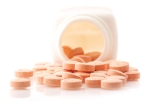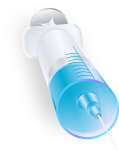Suboxone is a medication that is used to treat addiction.
Suboxone Background
Prescription opioid pain medications such as Oxycontin and Vicodin are very addictive. These drugs can have effects similar to heroin … especially when taken in large doses or taken other than prescribed. Not everyone who uses opioids gets addicted. But it is difficult to stop using opioids after you have become hooked. This is because the cravings are so strong and the fear of withdrawal is so great.
Medications for Heroin Addiction
Suboxone is one of three medications commonly used to treat opioid addiction (the other two are Naltrexone and Morphine). The goal is for the person who takes Suboxone to feel normal — not high.
How does Suboxone work?
It tricks the brain into thinking it is receiving the problem drug (opioid). This helps the withdrawal symptoms stay away. Suboxone also reduces cravings. You need to be under the careful care of a doctor. If cravings continue to be a problem, your doctor will typically adjust your medication or help you find other ways to reduce them.

You take Suboxone as a pill that dissolves under the tongue. You do not chew or swallow it (that will reduce the effects).
There are two forms.
Suboxone which is Buprenorphine plus another medication called Naloxone. The Naloxone is added to prevent abuse—it brings on withdrawal in people who abuse Suboxone by injecting it. Subutex contains only Buprenorphine. This form is prescribed if you should not take Naloxone for any reason, such as if you are allergic to it or are pregnant. The pill is taken once a day. Over time, the dosing interval may stay at once a day or change to every other day.
Important Suboxone Information
Not all doctors have the approval to prescribe this medication, and not all doctors provide counseling for addiction. Also, daily check-in at a treatment center can be helpful to recovery. Therefore, for most folks, a treatment center is the best place to receive medication for opioid addiction. People who say in a 90-day program have the best chance of success.
Be careful when taking this medication
You need to be honest with your doctor, so you can get the correct dose. Your doctor will prescribe a low dose to start taking after you moderate withdrawal symptoms begin. Dose levels may be adjusted up as needed. Always take doses exactly as prescribed by your doctor. Suboxone can make you feel drowsy at first.
Obviously, you should not drive or perform other high-risk tasks until you know how this medication affects you. You may take Suboxone for days, months, or years—as long as it is needed to prevent relapse. If you are stable in recovery and want to stop taking Suboxone, you must do it slowly, over time. This is called tapering. Tapering works best (with the help of your doctor or substance abuse counselor) after progress has been made in treatment.
Common Suboxone Side effects and Simple Ways To Reduce Them
- Body aches, headaches, and cold or flu-like symptoms— Check with your doctor about over-the-counter medicines you may take.
- Dizziness—Stand up slowly. Call your doctor if problems persist.
- Constipation—Drink more water and juice. Eat food with fiber. Exercise more.
- Sweating—Shower often. Dress in layers.
- Sleep problems, including tiredness—Take the pill in the morning. Avoid naps. Go to bed at the same time every night. Exercise. Do not drink caffeine after lunchtime.
- Upset stomach or vomiting—Take the pill after you have eaten. Take an antacid product as directed by your doctor.
- Mood swings—Exercise more. Do fun things that do not involve the old drug lifestyle. Relax. Talk to your substance abuse treatment provider.

FAQ at the FDA site.
Serious side effects of Suboxone
For extreme stomach pain, vomiting, or diarrhea, contact your doctor right away. Also seek help if the following side effects appear, because they may indicate serious liver problems:
- Dark or tea-colored urine
- Bad stomach-ache
- Light-colored bowel movements
- Yellowing of the whites of the eyes
- Yellow skin.
Don’t skimp on the counseling and support
Medication is one part of the treatment for opioid addiction. It’s important to have the opportunity to talk with a professional. You will learn about the motivations and behaviors that led to your opioid addiction. In group counseling, you connect with others in treatment and make new friends who don’t use drugs. You can get these benefits from support groups, too. These are informal meetings of people facing similar challenges. Support from family and friends is very important. Love and encouragement can help you make the decision to enter treatment and stick with it.
Recovery is possible. But it takes work. After treatment is finished, everything is not automatically okay again. Recovery takes commitment every day, through treatment and beyond. Remember, addiction is a chronic brain disease. There is no medication that will “fix” you. Commit to a lifetime of recovery and a healthful lifestyle.
Suboxone Fast Facts
Suboxone What true and what is not
- Suboxone helps with withdrawal symptoms so you can think and function normally. It is legal and taken under a doctor’s care. It is NOT just another drug to abuse.
- Suboxone is produced under safe conditions and sold legally. There is no risk of getting tainted doses, which can happen with street drugs. Also, the risk of an overdose of this medication is very small.
- You can stop taking Suboxone when you are ready.
- You can become dependent on Suboxone, as with many medications taken over time. For this reason, if you wish to stop taking Suboxone, you should work with a substance abuse treatment provider to taper off. This prevents withdrawal symptoms from appearing.
Our personal experience is that the best long-term recovery is inpatient treatment. Specifically, sending someone far away from their environment for 90 days has the best outcome. Short-term solutions like Suboxone medication or even just a detox is not going to be enough. There are no shortcuts for long-term recovery from drug addiction.
SaveSave
SaveSave
SaveSave
SaveSave
